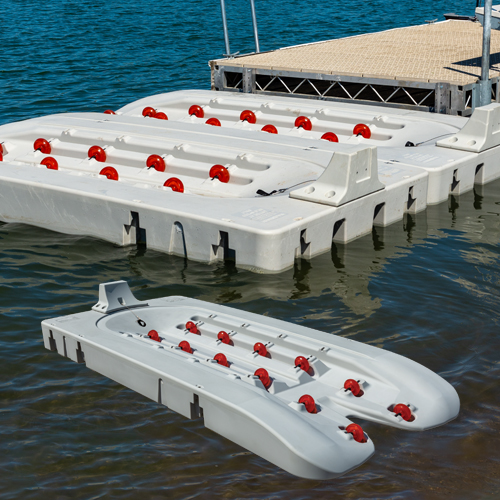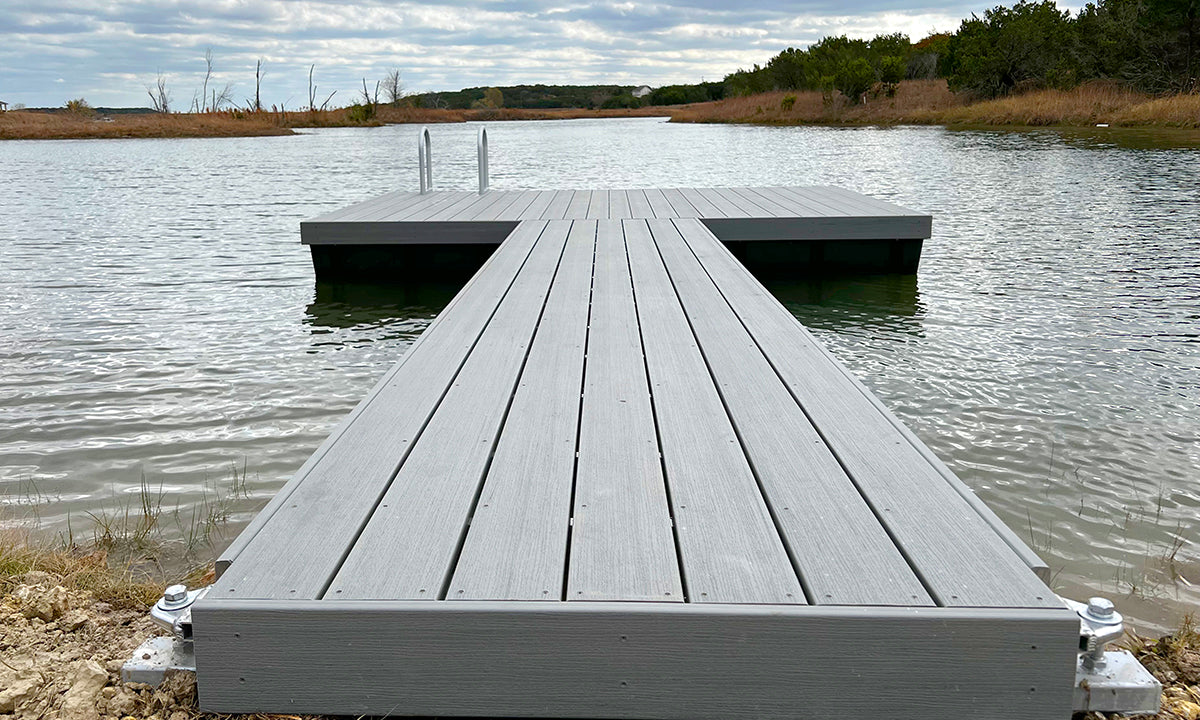Floating Docks: The Smart Selection for Modern Waterside Living and Leisure
Floating Docks: The Smart Selection for Modern Waterside Living and Leisure
Blog Article
Floating Docks: The Ideal Option for Versatile Water Access
Floating docks present a compelling solution for a selection of water access needs, offering adaptability that goes beyond standard mooring alternatives. The modular nature of floating docks helps with modification, providing to details needs.
Advantages of Floating Docks
Floating docks deal numerous advantages that boost water access for different applications. Their capacity to fall and increase with changing water levels makes them especially helpful in settings with fluctuating trends or seasonal variations. This adaptability makes certain that vessels can quickly moor without worry for the water's depth, giving a reputable system for recreational, commercial, and industrial usages.
Additionally, floating docks are typically built from long lasting products that stand up to deterioration, making them appropriate for long-term use in marine atmospheres. Their installation is normally less intrusive than typical set docks, decreasing the ecological impact and helping with quicker deployment (floating dock services). This versatility enables less complicated moving or reconfiguration according to individual needs or ecological changes
Safety and security is another vital advantage; floating docks can give stable accessibility for people disembarking or boarding from watercrafts and lower the danger of accidents connected with unsteady surfaces. Furthermore, they can be created to suit a range of accessories, such as fenders and cleats, boosting performance. In general, floating docks represent a reliable option for improving water access throughout varied sectors while promoting safety and environmental sustainability.

Sorts Of Floating Docks
Various kinds of floating docks deal with different needs and atmospheres, each developed with particular features to enhance performance. The most common kinds include modular docks, which are composed of interlocking sections that permit easy personalization and growth. These docks are perfect for recreational usage, as they can be tailored to fit various boat dimensions and water conditions.
An additional popular alternative is the stationary floating dock, which continues to be anchored in location however floats with altering water levels. floating dock services. This type is especially fit for locations with very little tidal changes, supplying stable accessibility for angling or swimming. In addition, there are drive-on docks, which feature a sloped design that allows boats to quickly drive on and off, making them suitable for individual boat and smaller vessels
For industrial applications, heavy-duty floating docks are offered, built from strengthened materials to withstand substantial lots and rough aquatic atmospheres. Environment-friendly floating docks utilize lasting materials and styles to reduce environmental impact, frequently incorporating attributes like plants to sustain regional wild animals. Comprehending the different sorts of floating docks makes sure that users can choose the most proper option for their certain requirements.
Installation Refine Review
A successful installment of floating docks calls for cautious planning and interest to detail to make certain optimal performance and safety and security. The preliminary step involves assessing the website conditions, consisting of water depth, existing, and prospective barriers. This assessment notifies the choice of the appropriate dock materials and layout customized to the particular setting.
Following, obtaining needed licenses is crucial, as many territories have regulations pertaining to building and construction on water bodies. The installment can proceed once permissions are safeguarded. Begin by preparing the foundation, which might involve anchoring systems or pilings tailored to the dock type and local conditions.
Following the foundation setup, set up the dock areas according to maker specs. Make certain that all parts are firmly secured and aligned to stand up to environmental stresses. Setting the dock in the designated area, ensuring it is level and steady.

Upkeep Tips and Finest Practices
After the setup process is total, recurring maintenance plays a vital duty in making sure the long life and performance of floating docks. Regular examinations should be carried out to recognize any kind of indications of wear, damages, or wear and tear - floating dock services. Look for any type of loosened fittings, fractures, or splitting up in the dock areas, as these can compromise architectural stability
Cleansing the dock is essential to remove debris, algae, and various other accumulation that can influence its appearance and security. Use a mild stress wash periodically to keep tidiness without creating damages to the surface. Additionally, using a protective sealer every couple of years can assist enhance durability and resist environmental wear.
Pay attention to the mooring lines and supports, guaranteeing they are safe and secure and complimentary from rust. Replace any type of degraded components immediately to avoid dangers. Seasonal modifications may additionally be needed; throughout severe weather problems, reinforcing the dock or rearranging can protect against damages.
Applications for Floating Docks
Floating docks serve a plethora of applications, dealing with both industrial and leisure demands. In leisure setups, they give smooth accessibility to rivers for activities such as boating, angling, and swimming. Their flexible nature enables installment in varying water levels, making sure secure and safe access regardless of tidal variations.
Readily, floating docks are essential for marinas and beachfront companies. They help with the docking of vessels, allowing efficient unloading and packing of goods. Their modular layout permits for easy development or reconfiguration to fit altering company demands, making them perfect for watercraft rentals, tour procedures, or fishing charters.
Additionally, floating docks are utilized in environmental applications such as marine study and habitat repair. They can work as platforms for scientific studies, monitoring water quality, or carrying out wild animals surveys without disturbing delicate communities.
In industrial contexts, floating docks are useful link utilized in construction tasks, offering this hyperlink accessibility to hard-to-reach areas for tools and personnel. Their versatility, longevity, and minimal effect on the setting make them an ideal option for a variety of applications, improving both functionality and access in various water-based environments.
Conclusion
In final thought, floating docks stand for an ideal service for diverse water accessibility needs, owing to their adaptability, longevity, and modular design. These frameworks promote secure mooring for various applications while minimizing ecological influence throughout installation. The reduced maintenance demands better improve their usefulness. Because of this, floating docks act as a beneficial possession for entertainment, commercial, and environmental tasks, making certain reputable access to rivers and promoting lasting methods in water settings.
Floating docks existing an engaging service for a variety of water gain access to requires, offering convenience that goes beyond traditional mooring alternatives.Floating docks deal numerous benefits that enhance water access for numerous applications. On the whole, floating docks stand for an efficient remedy for boosting water gain access to throughout varied fields while promoting safety and security and ecological sustainability.
Another preferred alternative is the fixed floating dock, which stays secured in area yet floats with transforming water degrees.In verdict, floating docks stand for an optimal option for varied water visit homepage accessibility requires, owing to their versatility, resilience, and modular style.
Report this page